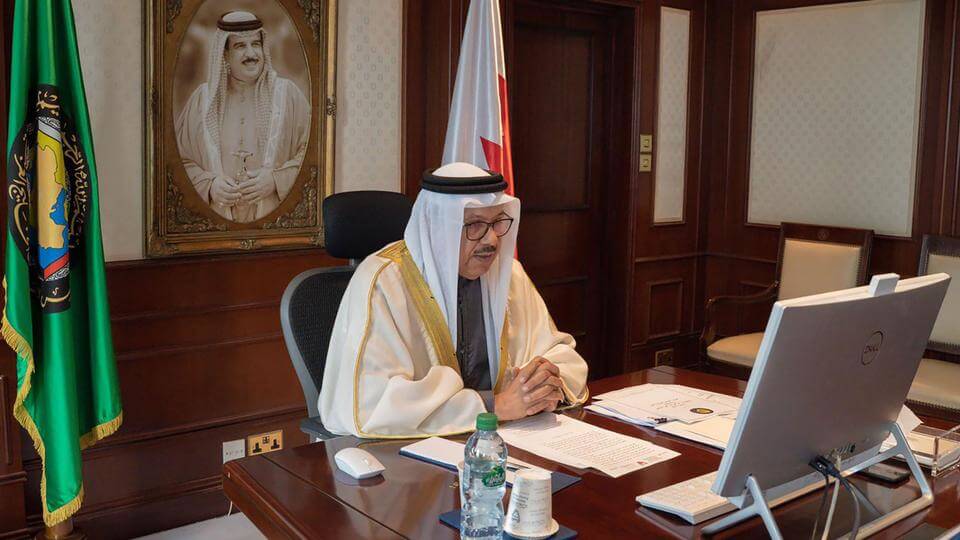On Sunday, the foreign ministers of the Gulf Arab states—Saudi Arabia, the United Arab Emirates (UAE), Bahrain, Oman, Kuwait, and Qatar—held a virtual conference ahead of the upcoming Gulf Cooperation Council (GCC) meeting in Riyadh on January 5. The meeting was aimed at reinstating ‘cooperation’ between the Saudi-led alliance and Qatar.
The six participants discussed “suggestions on supporting and strengthening joint Gulf cooperation in various political, economic and social aspects”, according to a statement by Kuwait’s foreign ministry. This development came after Bahrain officially called for an “end to regional disputes,” on Wednesday, referring to the Saudi-Qatar feud.
The preliminary meeting comes before the 41st GCC summit due to take place in the Saudi capital of Riyadh on January 5. The summit aims to finalise an agreement to end the diplomatic crisis that has put Qatar under a blockade by Saudi Arabia, UAE, Bahrain, and Egypt since 2017.
Earlier in 2017, Saudi Arabia, along with the UAE, Bahrain, and Egypt, cut ties with Qatar, stating that Doha had violated a 2014 agreement with the GCC members, under which the signatory parties agreed to noninterference in each other’s affairs, cooperation on regional issues, and declined to support extremist groups. However, in 2017, Doha was accused of interfering in the internal affairs of Saudi, UAE, and Bahrain. Manama was also accused of promoting extremism through Al Jazeera and other Qatari media networks and supporting the Muslim Brotherhood throughout the region. Additionally, Saudi Arabia stated that Qatar had gotten very close to Iran and was funding radical Islamist movements. Consequently, the four GCC members imposed a land, sea, and air blockade on Qatar. The travel ban was further supported by Jordan, Maldives, Malaysia, Yemen, and the Tobruk-based government in Libya.
However, with Joe Biden winning the 2020 United States elections, Saudi Arabia has indicated an interest in mending its relationship with Qatar, in the hopes that Biden will, in turn, soften his foreign policy approach towards the Kingdom.
According to some attendees of the virtual conference, the Saudi-led alliance was willing to compromise on its list of demands, with the upcoming summit providing a path to reconciliation. Bahrain’s foreign minister, Abdellatif al-Zayani, expressed confidence “in Saudi Arabia’s ability to find a solution to the dispute within the Gulf”.
Some observers argue that an agreement could result in a set of principles for negotiations or a more concrete move involving the reopening of air space to Qatar. However, other analysts, like Majed Alraeesi, argue that the Saudi led “reconciliation” is more of a facade.
القول بأن الفترة القادمة " مصالحة " ليس بأمر واقعي وإنما من باب رفع السقف والأمنيات ، والحقيقة أنها مرحلة أساسها المصداقية وحسن النوايا من نقطة الصفر بهدف تعزيز الحوار .. التفاؤل الموجود في غير محله مقارنةً بالواقع
— ماجد الرئيسي 🇦🇪 (@majedalraeesi1) December 27, 2020
That being said, Qatar itself is hopeful of these tensions being resolved in the immediate future. Prior to this meeting, on December 23, during a news conference with Russian foreign minister Sergei Lavrov, Qatari foreign minister Sheikh Mohammed bin Abdulrahman al-Thani made a plea for dialogue between the GCC and Iran, saying, “We welcome any initiatives that make the region more stable.” The Qatar official appeared hopeful, saying that there are “no political obstacles to resolving the Gulf crisis.”
However, given that Saudi Arabia’s King Salman called on the international community to take a “decisive stance” against Iran’s ballistic missile and nuclear programmes just last month, it is unclear what this optimism is centred around. As it stands, Qatar has not indicated that it is willing to distance itself from Iran, making it difficult for the Gulf states to reach a common ground.

